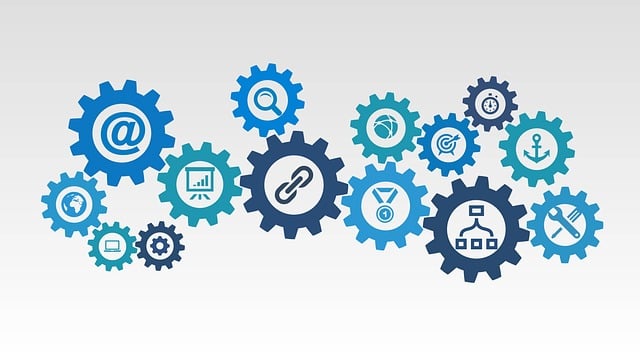AI landscaping revolutionizes garden care with data-driven irrigation scheduling, conserving water and optimizing plant health. These systems analyze weather, plant types, soil moisture, and historical data for personalized watering plans. Through response rate analysis, they refine strategies, enabling efficient resource allocation and identifying upsell opportunities for smart garden equipment, thereby enhancing customer satisfaction and landscape aesthetics while promoting sustainable water management.
“Revolutionize your garden’s health and efficiency with AI landscaping and automated irrigation scheduling. This cutting-edge technology is transforming outdoor spaces, ensuring optimal plant growth while conserving water. In this article, we explore the benefits of AI landscaping and its potential to enhance irrigation practices. From understanding the technology’s core concepts to delving into data analysis for better upsell response rates, each section provides valuable insights. Discover how AI can automate scheduling, optimize resources, and foster thriving landscapes.”
- Understanding AI Landscaping and Its Benefits
- Automated Irrigation Scheduling: A Deep Dive
- Upselling with Data: Enhancing Response Rates through AI Analysis
Understanding AI Landscaping and Its Benefits

AI landscaping is transforming the way we approach garden and lawn care, offering a wealth of benefits for both homeowners and commercial property managers. By leveraging machine learning algorithms and data analysis, AI systems can optimize various aspects of outdoor space management. One notable advantage is its ability to enhance water conservation through automated irrigation scheduling. These intelligent systems study weather patterns, plant types, soil moisture levels, and historical usage data to determine precise watering schedules, ensuring plants receive the ideal amount of water.
Furthermore, AI landscaping enables efficient resource allocation. Through response rate analysis, these technologies can gauge the effectiveness of different irrigation strategies, upselling opportunities for smart garden equipment. This data-driven approach allows for personalized care, improving plant health and reducing waste, ultimately leading to satisfied customers and healthier outdoor environments.
Automated Irrigation Scheduling: A Deep Dive

Automated Irrigation Scheduling leverages AI for precise, data-driven water distribution in landscapes. By analyzing historical weather data, plant types, soil moisture levels and more, AI algorithms can learn optimal irrigation patterns tailored to specific areas. This not only conserves water but also enhances plant health by preventing over or under-watering.
Through response rate analysis, AI systems continually refine their scheduling models. They monitor actual versus expected plant water usage, adjusting frequency and duration of irrigation based on real-time feedback. This iterative process ensures efficient water use, minimizes waste, and increases the overall upsell potential for landscaping services by demonstrating superior plant care and resource management.
Upselling with Data: Enhancing Response Rates through AI Analysis

In the realm of AI-driven landscaping, upselling services and enhancing customer response rates through data analysis is a game-changer. By leveraging AI, irrigation scheduling systems can collect and interpret vast amounts of data, such as weather patterns, plant health indicators, and historical usage trends. This deep understanding allows for highly personalized recommendations, persuading clients to adopt advanced irrigation solutions that offer both cost savings and improved landscape aesthetics.
The power of AI upsell lies in its ability to provide tailored proposals based on individual needs. For instance, analyzing data can reveal areas within a property that require specific attention or highlighting the benefits of smart sensors for precise water distribution. Such insights not only increase the likelihood of customer acceptance but also contribute to more efficient water management, making it a win-win scenario for both landscapers and their clients.
AI landscaping offers a revolutionary approach to garden care, and by automating irrigation scheduling, it ensures plants receive optimal water consumption. The article has explored how AI benefits include efficient resource management, cost savings, and enhanced plant health. Through deep analysis of weather data and plant behavior, AI systems can accurately predict and schedule irrigation, avoiding over- or underwatering. Moreover, integrating AI upselling with response rate analysis allows landscaping businesses to provide tailored services, increasing client satisfaction and profitability. By leveraging these technologies, professionals can elevate their practices, contributing to healthier landscapes and thriving gardens.
